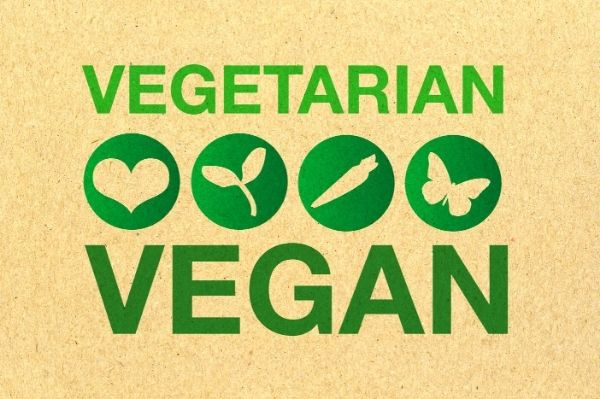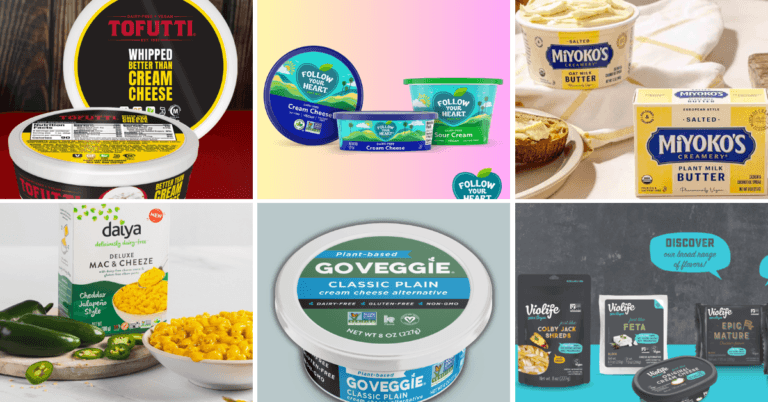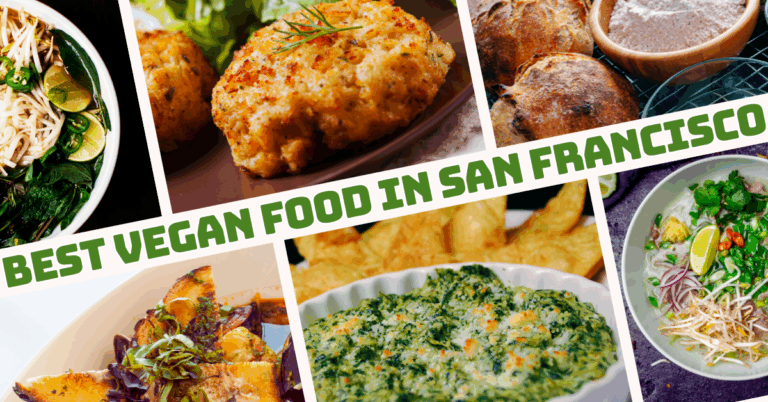Best Vegan Seafood Creations
Best Vegan Seafood Creations
Diving into the world of vegan seafood offers a compelling and sustainable journey that allows individuals to savour the tastes of the ocean without harming marine life.
As the popularity of plant-based diets grows, so does the demand for cruelty-free and eco-conscious alternatives to traditional seafood.
Vegan seafood products offer a delicious array of options, replicating the textures, flavours, and versatility of seafood dishes while promoting ethical and environmentally friendly choices.
The possibilities are vast and exciting, from plant-based fish fillets to mock shrimp and scallops.
In this article, we will explore the innovative world of vegan seafood, the ingredients used to recreate ocean-inspired flavours and the benefits of choosing these delectable alternatives for a more compassionate and sustainable approach to dining.
Whether you are a committed vegan or simply curious about incorporating more plant-based options into your diet, this guide to vegan seafood will open your palate to a world of ocean-inspired delights.
What Is Vegan Seafood?
Vegan or plant-based or faux seafood refers to a diverse range of products replicating traditional seafood dishes' taste, texture, and appearance without animal-derived ingredients.
Instead, these innovative alternatives are made from plant-based sources, such as seaweed, vegetables, legumes, and other plant proteins.
The goal of vegan seafood is to provide a compassionate and sustainable option for individuals who want to enjoy the flavours of the ocean without contributing to overfishing or the environmental impact of the fishing industry.
Vegan seafood products are carefully crafted to mimic the taste and mouthfeel of popular seafood items like fish fillets, shrimp, crab cakes, scallops, and even fish sauces.
Manufacturers use various techniques and ingredients to achieve the desired texture and flavour, often incorporating seaweed for a hint of oceanic taste and colour.
As the demand for plant-based alternatives grows, the variety and quality of vegan seafood products continue to expand, offering a delectable and ethical solution for those seeking to embrace a more environmentally friendly and cruelty-free approach to their dining choices.
Health Benefits Of Vegan Seafood
Vegan seafood offers several health benefits, making it an excellent choice for individuals looking to improve their diet while reducing their environmental impact. Here are some of the health benefits of consuming vegan seafood:
1. Low In Cholesterol And Saturated Fat
Vegan seafood is typically free from cholesterol and low in saturated fat, which is known to contribute to heart disease and other cardiovascular issues.
Plant-based seafood options can help lower overall cholesterol levels and improve heart health.
2. High in Nutrients
Many vegan seafood alternatives contain essential nutrients like vitamins, minerals, and fiber.
Seaweed, a common ingredient in vegan seafood, is particularly abundant in vitamins C, A, and B and minerals like iron, calcium, and iodine.
3. Omega-3 Fatty Acids
Some vegan seafood products are fortified with omega-3 fatty acids, essential for brain health, reducing inflammation, and supporting heart health.
These products often use algae-based sources of omega-3s, a sustainable alternative to fish-based omega-3 supplements.
4. Low Mercury And Toxins
Vegan seafood is free from environmental contaminants like mercury, which can be a concern in certain fish species.
By opting for plant-based alternatives, individuals can avoid the potential risks of consuming high levels of mercury and other toxins in seafood.
5. Digestive Health
Vegan seafood often contains fiber from plant sources, promoting better digestion and gut health.
Fiber helps regulate bowel movements and can contribute to a sense of fullness, aiding in weight management.
6. Reduced Allergen Risk
Vegan seafood provides a safe and allergy-friendly option for individuals with shellfish or seafood allergies, allowing them to enjoy seafood flavours without the risk of allergic reactions.
7. Plant-Based Protein
Vegan seafood options often contain plant-based proteins like soy, peas, and beans.
These proteins provide essential amino acids and can be an excellent source of protein for individuals following a vegan or vegetarian diet.
8. Reduced Environmental Impact
Choosing vegan seafood over traditional seafood can significantly reduce the environmental impact of fishing and aquaculture.
Overfishing and unsustainable fishing practices can lead to the depletion of marine ecosystems and negatively impact ocean biodiversity.
Opting for plant-based seafood helps promote a more sustainable food system.
9. Low In Calories
Many vegan seafood alternatives are lower in calories than their animal-based counterparts.
This can benefit individuals looking to manage their weight or reduce calorie intake without compromising taste and nutrition.
10. Allergy-Friendly
Vegan seafood is an ideal option for individuals with allergies to fish or shellfish. It allows them to enjoy a wide variety of seafood-inspired dishes without the risk of triggering an allergic reaction.
Individuals can reap these health benefits by incorporating vegan seafood into their diet while contributing to a more sustainable and compassionate food system.
As the demand for plant-based alternatives grows, the availability and diversity of vegan seafood options continue to expand, providing delicious and nutritious choices for everyone to enjoy.
Best Vegan Sea Food Creations
Vegan seafood is making a splash in the culinary world, and its popularity is steadily rising among vegans and non-vegans.
As concerns about overfishing, ocean pollution, and the ethical treatment of marine life grow, consumers are seeking sustainable and compassionate alternatives to traditional seafood.
The demand for plant-based seafood options has led to a creative and innovative industry that aims to replicate fish and shellfish's taste, texture, and nutritional value without harming the oceans or marine ecosystems. Here is a list of some popular vegan seafood alternatives:
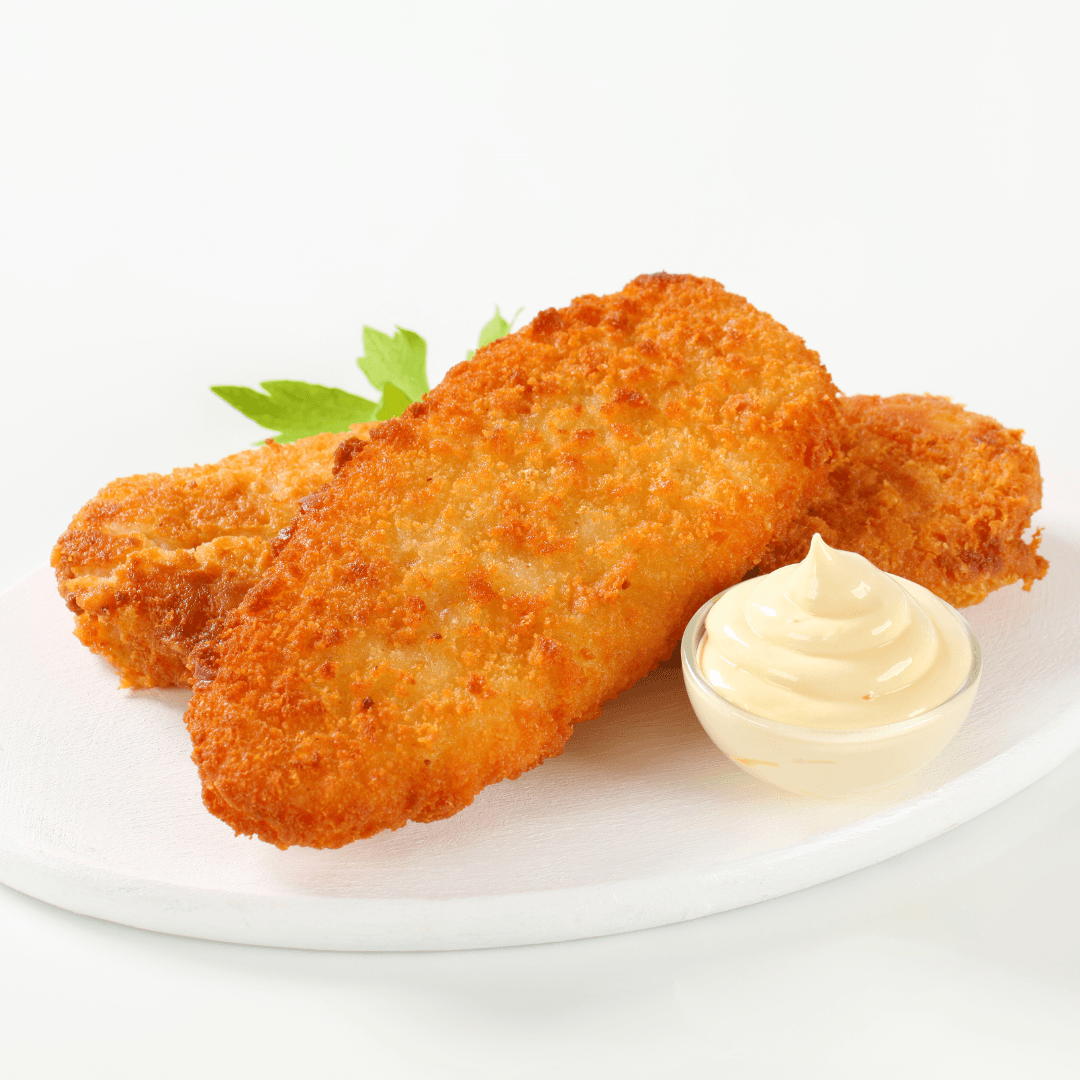
1. Plant-Based Fish Fillets
Plant-based fish fillets are a delicious and sustainable alternative to traditional seafood.
These vegan-friendly options are crafted from various plant-based proteins, such as soy protein, wheat gluten (seitan), or pea protein, which undergo special processing to replicate fish fillets' flaky and tender texture.
These plant-based proteins are often combined with seaweed extracts, which lend a subtle oceanic flavour and aroma to the fillets.
The result is a mouthwatering and eco-friendly choice that can be used in various seafood-inspired dishes, from fish tacos to fish and chips.
Not only do plant-based fish fillets provide a guilt-free indulgence, but they also reduce the demand for overfished or threatened species, promoting sustainable fishing practices and helping to protect marine ecosystems.
Furthermore, they are typically cholesterol-free and lower in saturated fat than their animal-based counterparts, making them healthier for those seeking a balanced and nutritious diet.
Whether you're a committed vegan or simply looking to add more plant-based meals to your repertoire, plant-based fish fillets offer a delectable and compassionate way to enjoy the taste and experience of seafood without the environmental impact.
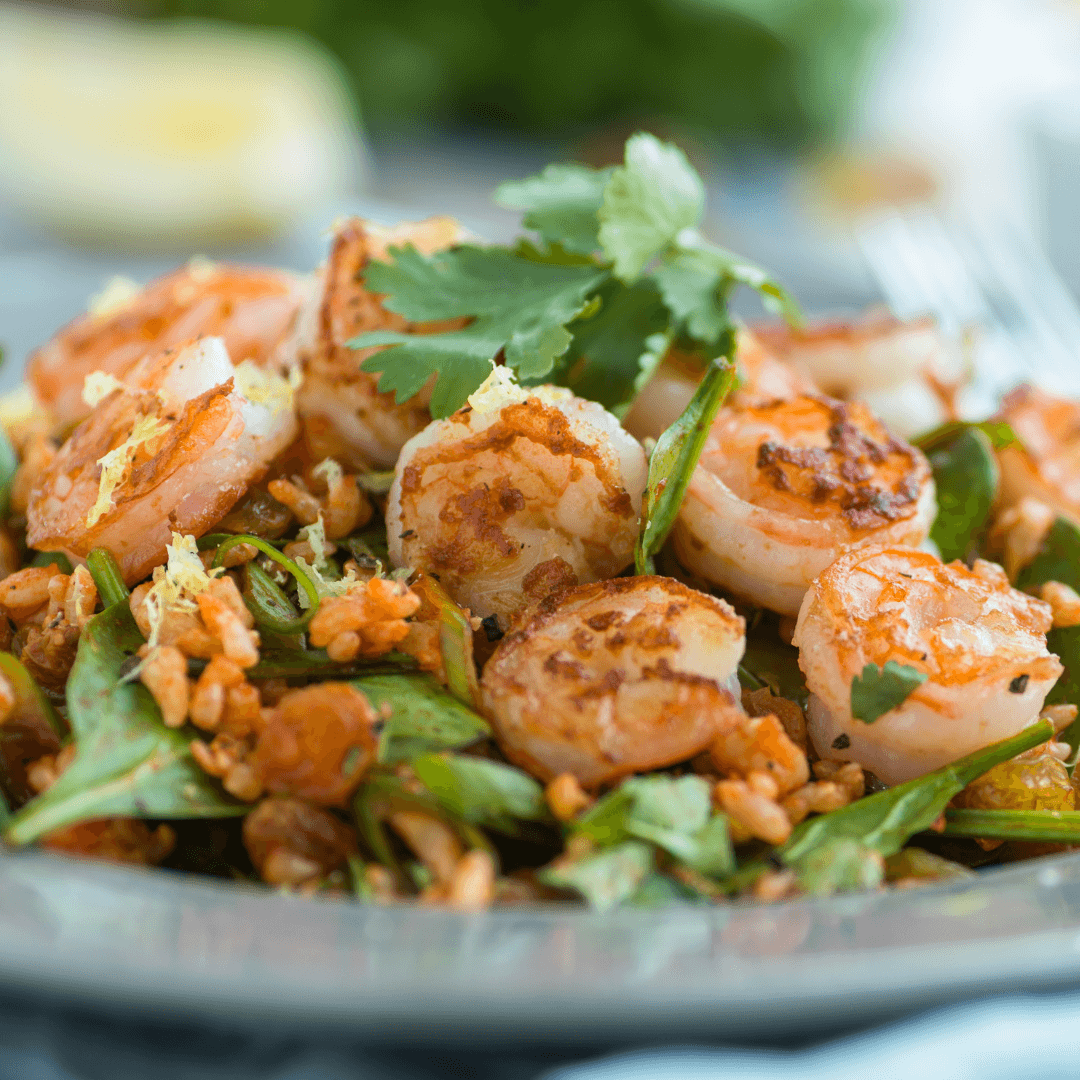
2. Vegan Shrimp
Vegan shrimp is a fantastic option for those seeking a plant-based alternative to seafood without sacrificing taste and texture.
These shrimp substitutes are typically crafted from ingredients like konjac, soy, or rice flour, and their appearance and chewy texture closely resemble real shrimp.
Konjac, a type of Asian yam, is often used to create vegan shrimp due to its ability to absorb flavours and mimic the firmness of seafood.
Soy-based versions are protein-rich, while rice flour-based options offer a gluten-free alternative.
The beauty of vegan shrimp lies in its versatility; it can be used in a wide range of dishes, from classic stir-fries and curries to flavorful pasta dishes and sushi rolls.
Seasonings, sauces, and cooking methods significantly enhance the shrimp's taste and bring out its seafood-like essence.
Whether you're an experienced vegan chef or a newcomer to plant-based cuisine, incorporating vegan shrimp into your meals offers a delectable and sustainable way to enjoy your favourite seafood-inspired dishes while promoting a more compassionate and eco-friendly lifestyle.

3. Vegan Scallops
Vegan scallops offer a delectable plant-based twist on the classic seafood delicacy, providing a tender and succulent texture reminiscent of the real thing.
These scallop alternatives are often made from creative ingredients like king oyster mushrooms or konjac root, both of which lend themselves well to imitating the texture and appearance of scallops.
King oyster mushrooms, with their thick and meaty stems, are sliced into circular pieces and pan-seared to achieve a caramelized and tender exterior resembling the bouncy texture of scallops.
On the other hand, konjac root, known for its gelatinous quality, is transformed into scallop shapes and then pan-fried, taking on the tender and chewy nature of traditional scallops.
Vegan scallops are versatile and can be used in various dishes, such as pasta, stir-fries, or an elegant appetizer.
Their ability to absorb flavours makes them ideal for pairing with fragrant herbs, zesty citrus, or savoury sauces, allowing for a wide range of culinary creativity.
Whether you're a seafood lover looking to embrace a plant-based lifestyle or simply seeking innovative and cruelty-free alternatives, vegan scallops offer a delightful and satisfying experience that celebrates compassion and sustainability in your culinary journey.
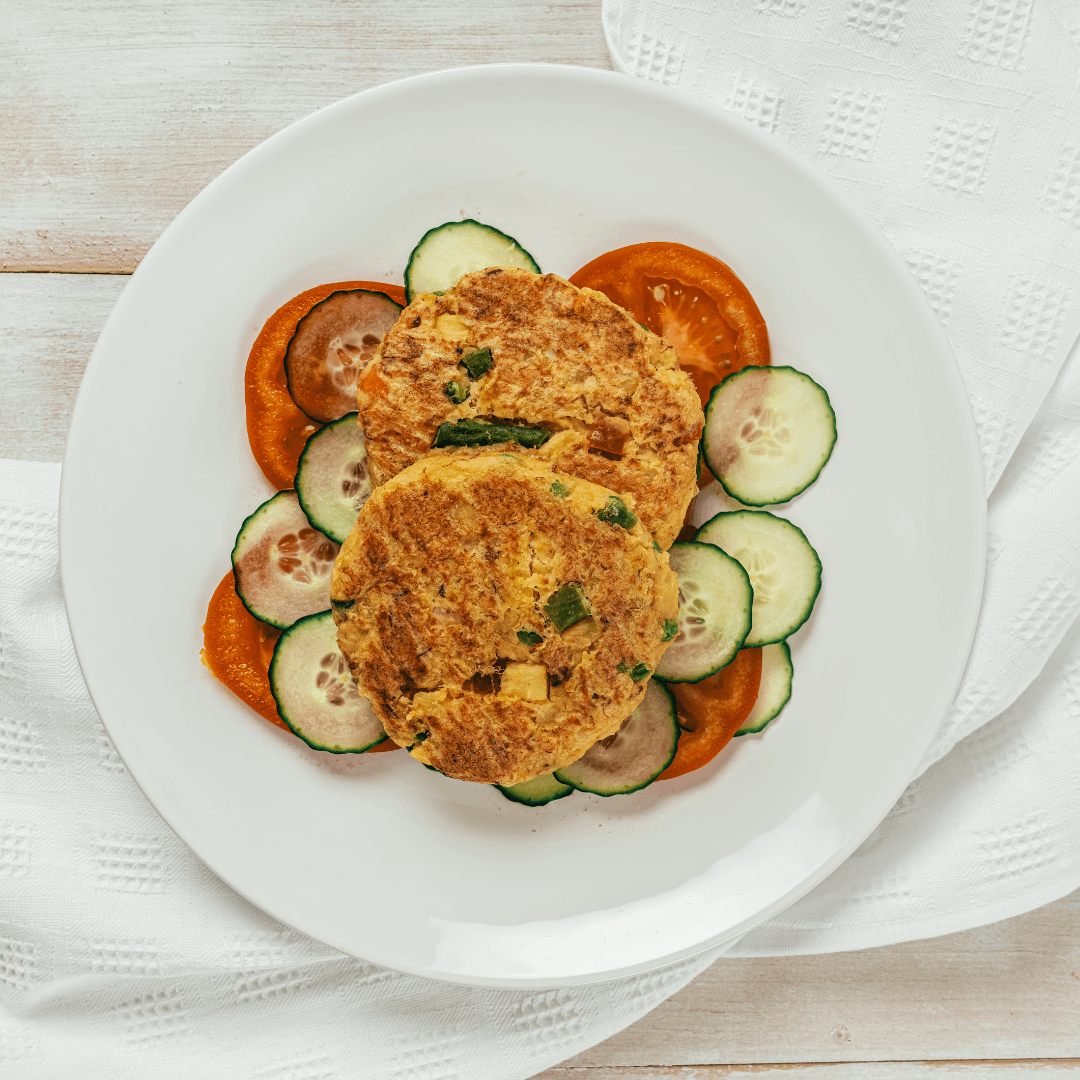
4. Vegan Crab Cakes
Vegan crab cakes are a delightful seafood-inspired alternative crafted from creative ingredients such as jackfruit, chickpeas, or heart of palm.
These plant-based crab cake substitutes capture the essence of traditional crab cakes while remaining entirely cruelty-free and sustainable.
With its fibrous and meaty texture, Jackfruit is a popular choice for mimicking the flaky consistency of crab meat.
It is seasoned with Old Bay or other seafood-inspired spices to achieve the authentic taste of crab cakes.
On the other hand, Chickpeas provide a hearty and protein-rich base that can be combined with various herbs and seasonings to create a flavorful and satisfying vegan crab cake.
Additionally, with its mild and delicate taste, the heart of the palm can be shredded and combined with breadcrumbs and spices to achieve a tender and seafood-like texture.
These vegan crab cakes are usually pan-fried until golden and crispy, just like their traditional counterparts.
They can be served with a zesty remoulade sauce, tartar sauce, or a squeeze of lemon for a burst of flavour.
Vegan crab cakes are a fantastic option for those looking to enjoy the taste and texture of crab without harming marine life, making them a delectable and ethical addition to any seafood-inspired meal.
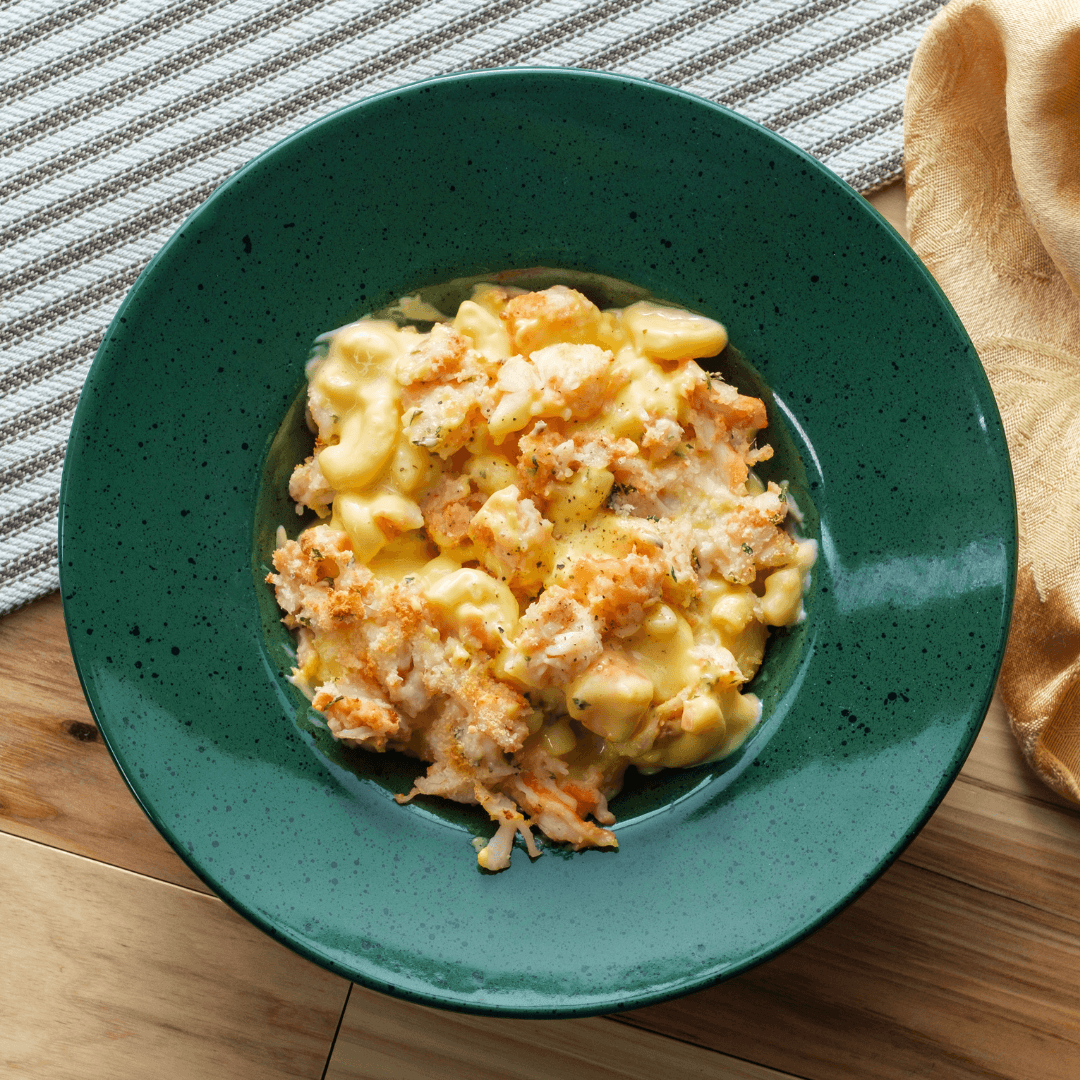
5. Vegan Lobster
Vegan lobster offers a compassionate and sustainable way to enjoy this classic seafood delicacy's taste and appearance without harming marine life.
Crafted from various plant-based ingredients, such as tofu, tempeh, or konjac, these lobster alternatives replicate the flavour and texture of real lobster.
Tofu and tempeh, both soy-based products, provide a solid and meaty base that can be seasoned and marinated to achieve the distinct taste of lobster.
When prepared with the right spices and herbs, these plant-based alternatives can closely mimic the flavour profile of their oceanic counterpart.
Additionally, konjac, a root vegetable, offers a unique rubbery and chewy texture that resembles lobster meat.
The versatility of these plant-based ingredients allows various cooking methods, including grilling, boiling, or steaming, to achieve a succulent and seafood-like texture.
Whether served in a lobster roll, pasta dish, or bisque, vegan lobster brings the essence of the ocean to vegan cuisine.
Individuals can savour the taste and experience of this beloved seafood by choosing vegan lobster while positively impacting the environment and marine life.

6. Vegan Tuna
Vegan tuna offers a delightful and sustainable alternative to traditional tuna, making it a popular choice among plant-based eaters.
Crafted from various plant-based ingredients like chickpeas, sunflower seeds, or soy, these tuna alternatives replicate real tuna's meaty texture and versatility.
Chickpeas provide a hearty, protein-rich base that can be mashed or blended for a flaky tuna-like texture.
Sunflower seeds offer a nutty flavour and crunchy texture, adding depth and richness to the vegan tuna.
Soy-based tuna alternatives often come in canned or pouch forms, closely resembling the appearance and taste of canned tuna.
These plant-based options are seasoned and flavoured to evoke the essence of the ocean and can be used in various dishes, such as tuna salad, sushi rolls, and sandwiches.
Vegan tuna is both a cruelty-free and environmentally friendly choice, as it helps reduce the demand for overfished tuna populations.
Embracing these sustainable and tasty alternatives allows individuals to enjoy the familiar taste and texture of tuna while positively impacting marine ecosystems and their inhabitants.
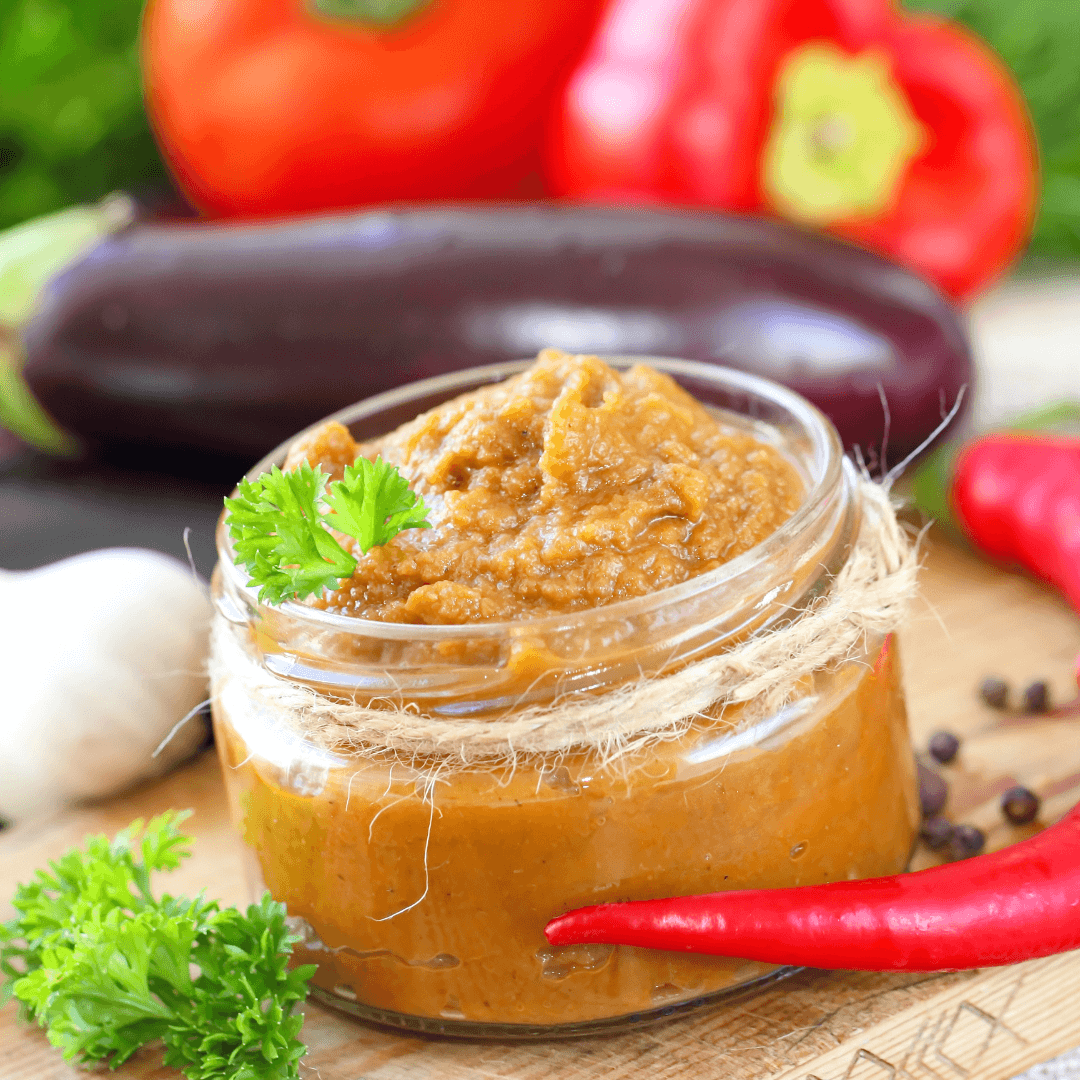
7. Vegan Caviar
Vegan caviar provides a delectable and cruelty-free alternative to traditional caviar, satisfying ethical and culinary preferences.
Crafted from various plant-based ingredients like seaweed, tapioca pearls, or vegetable extracts, these substitutes resemble real caviar's appearance and popping sensation.
Seaweed-based vegan caviar mimics traditional caviar's salty and briny taste, offering a taste of the ocean without harming marine life.
Tapioca pearls provide a delightful popping sensation when bitten into, reminiscent of the texture experience found in authentic caviar.
Vegetable extracts can create vibrant and visually appealing caviar pearls in various colours and flavours.
Vegan caviar can be an elegant topping for canapés, sushi, or salads, elevating any dish with its sophisticated touch.
Its versatility and cruelty-free nature make it an excellent choice for individuals seeking to avoid animal-derived products without compromising taste and presentation.
Embracing plant-based caviar alternatives allows one to enjoy the luxurious experience of caviar and supports sustainable and ethical practices that protect aquatic ecosystems and marine species.
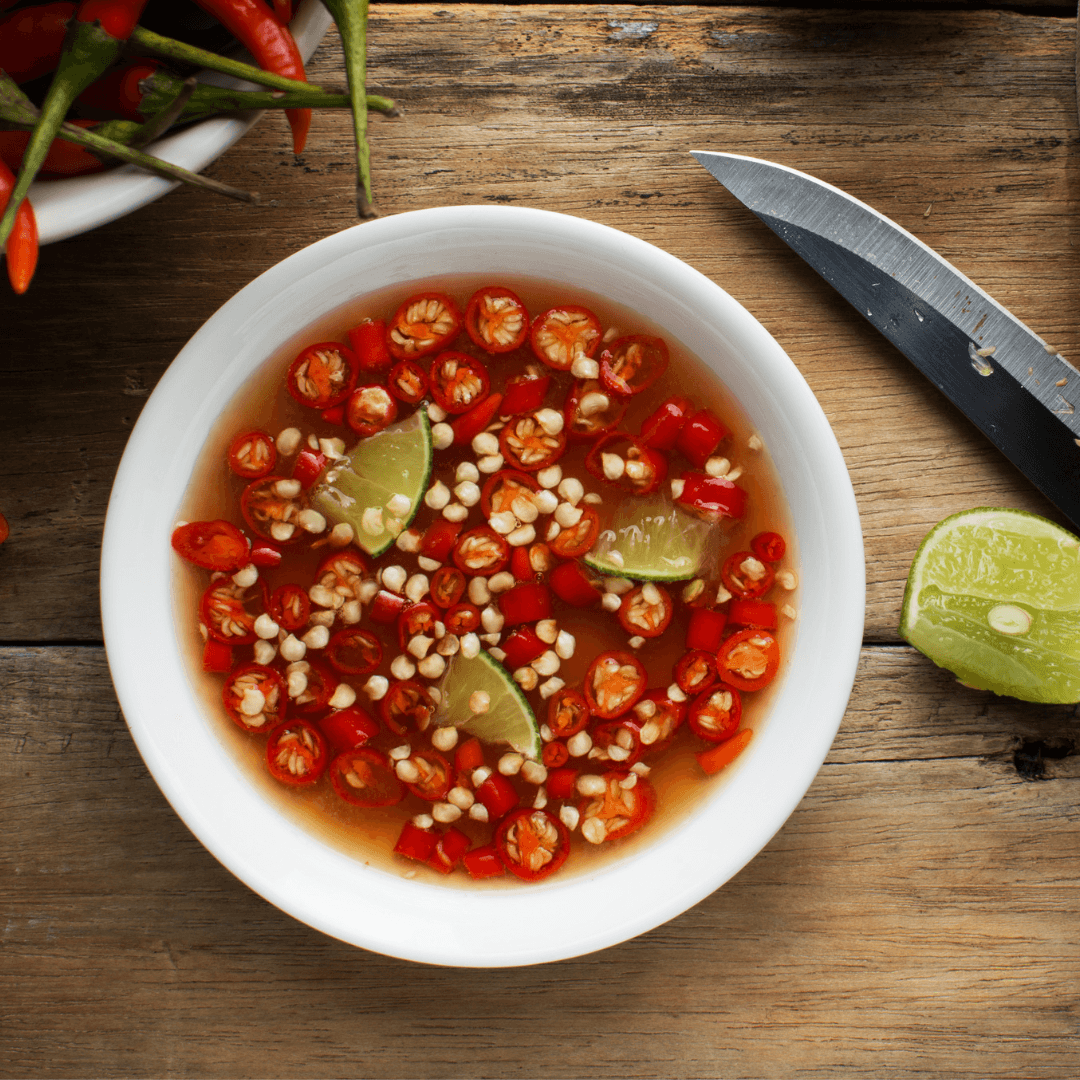
8. Vegan Fish Sauce
Vegan fish sauce offers a savoury and umami-rich alternative to traditional fish sauce, making it a perfect choice for those following a plant-based or vegetarian lifestyle.
Crafted from ingredients like seaweed, mushrooms, or soy sauce, these substitutes capture the essence of fish sauce without using any animal-derived components.
Seaweed-based vegan fish sauce replicates traditional fish sauce's briny and oceanic flavour, providing a hint of the sea in dishes.
Mushroom-based alternatives offer a rich and earthy umami taste, enhancing the depth of flavours in various recipes.
Soy sauce, particularly tamari or shoyu, can also create a fish sauce substitute that complements Asian dishes and brings out the desired umami notes.
Vegan fish sauce is an excellent ingredient for stir-fries, marinades, dressings, and soups, adding a distinctive flavour profile.
By choosing plant-based fish sauce alternatives, individuals can enjoy the complex taste of fish sauce while upholding their ethical values and reducing the environmental impact of traditional fish-based products.
These vegan options provide a delicious and sustainable way to elevate the flavours of diverse cuisines while embracing compassionate and eco-friendly culinary choices.
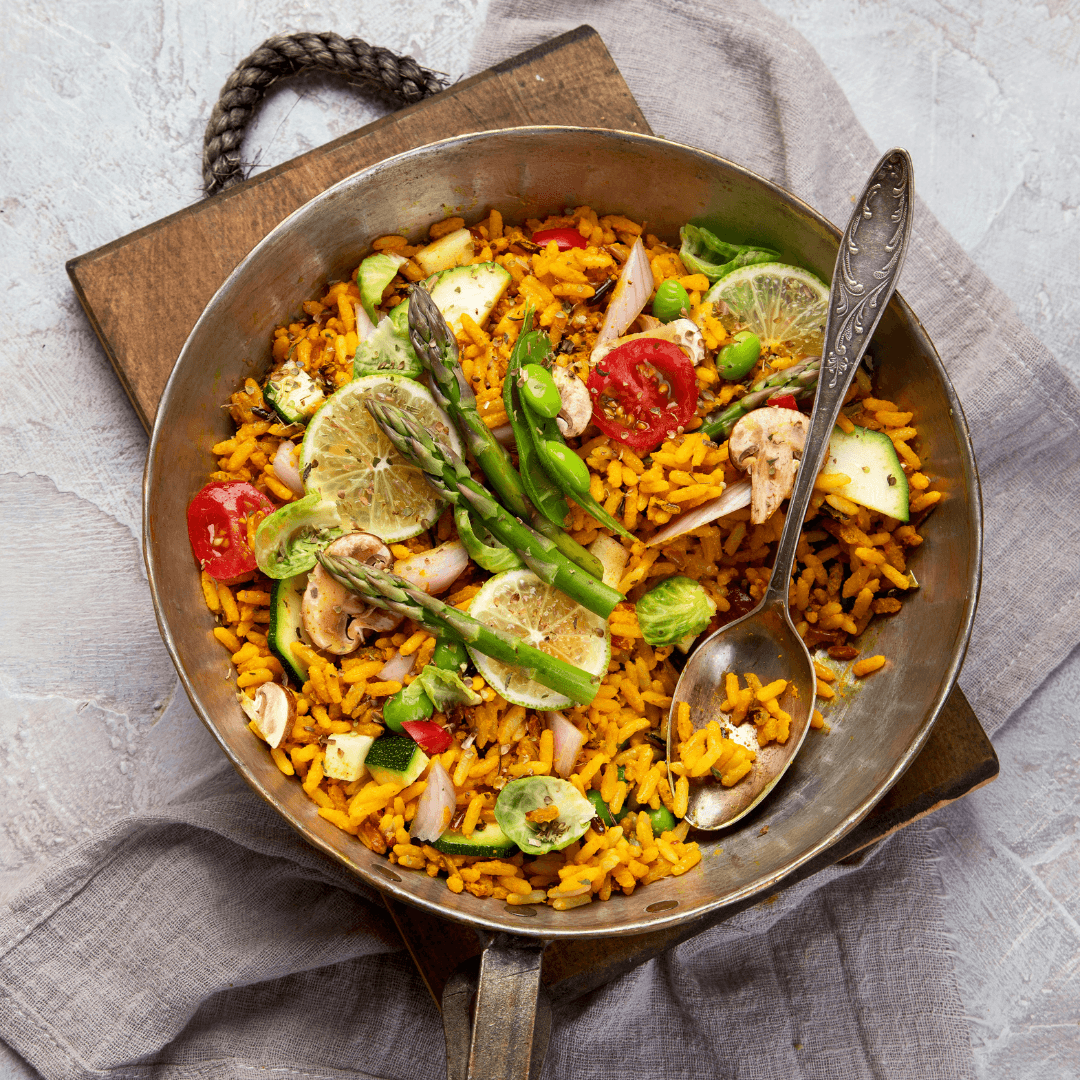
9. Vegan Paella
Vegan paella is a delightful and flavourful Spanish dish that substitutes traditional seafood with plant-based alternatives, making it suitable for vegans and those looking for a lighter and more sustainable version.
Instead of using seafood like shrimp or mussels, vegan paella incorporates ingredients such as tender jackfruit, artichokes, or earthy mushrooms to mimic the texture and taste of the original dish.
Jackfruit, when cooked, takes on a meaty and fibrous texture that resembles shellfish, providing a satisfying bite in the paella.
Artichokes bring a unique taste and a tender texture that complements the rice and vegetables, adding depth to the dish.
Additionally, mushrooms provide a rich umami flavour, enhancing the overall savoury profile of the paella.
With aromatic saffron, vibrant bell peppers, onions, and other vegetables, vegan paella becomes a colourful and nourishing one-pot meal that delights the senses.
This plant-based version of the classic Spanish paella offers a delectable alternative for those seeking a cruelty-free and environmentally conscious choice, showcasing the versatility of plant-based ingredients and the creativity in vegan cooking.
Conclusion
In conclusion, vegan seafood offers a diverse and exciting array of plant-based alternatives catering to ethical, environmental, and health-conscious consumers.
With innovation and creativity in the culinary world, vegan seafood options have evolved to mimic traditional seafood's taste, texture, and appearance closely, making them a compelling choice for those looking to embrace a compassionate and sustainable diet.
Overall, the world of vegan seafood is continuously expanding, driven by a commitment to ethical and sustainable food choices.
With the growing awareness of environmental concerns and animal welfare, these plant-based alternatives serve as a delicious and compassionate solution for conscious eaters, proving that indulgence and ethics can go hand in hand at the dinner table.
By embracing the innovative and mouthwatering world of vegan seafood, individuals can savour the ocean's pleasures while positively impacting the planet and its inhabitants.
I trust you enjoyed reading the Best Vegan Seafood Creations article. Please stay tuned. There are more blog posts to come very shortly.
JeannetteZ
>>>Please click here to read my Vegan Travel Guides To World Destinations<<<
>>>Do You Want To Surprise Your Family And Guests With Delicious Vegan Lunches And Dinners Regularly? Become A Member At Veecoco – My #1 Recommendation – And Have Access To Over 700 Delicious, Healthy AND 100% Vegan Recipes<<<
Your Opinion Is Important To Me
Ideas? Thoughts? Questions? I would love to hear from you. Please leave me your questions, experience, and remarks about the Best Vegan Seafood Creations in the comments section below. You can also reach me by email at Jeannette@LivingTheVeganLifestyle.org.
Disclosure
This post may contain affiliate links. I earn from qualifying purchases as an Amazon Associate and other affiliate programs. Please read my full disclosure.
Here are some links to some of my favourite articles:
Top Reasons People Avoid A Vegan Diet
A Definite Guide To Vegan Chocolate


